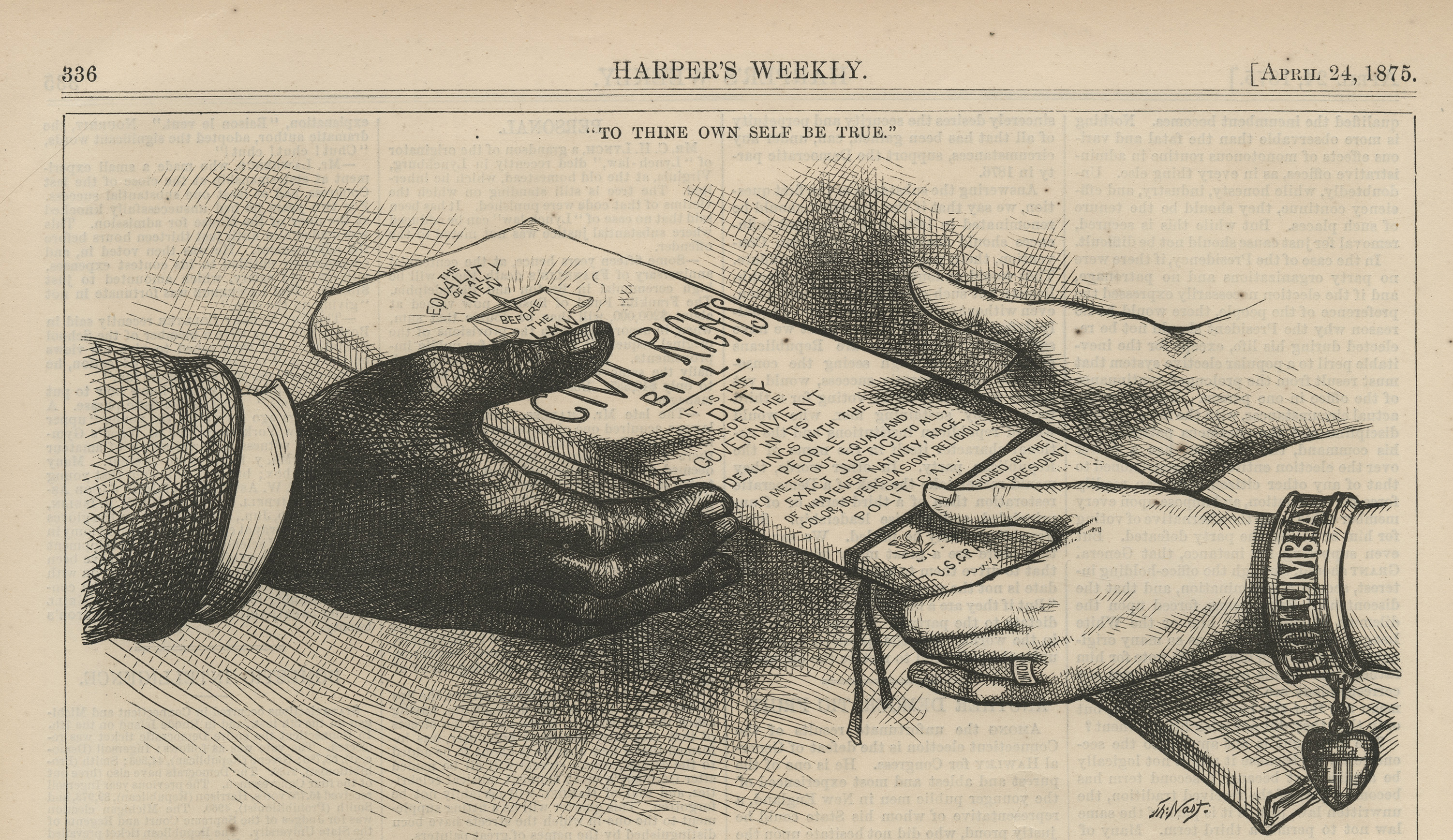Prior to the passage of the Civil Rights Act of 1875, South Carolina congressman Robert Brown Elliott (1824-1884) delivered a speech to the United States House of Representatives on January 6, 1875. In the speech, Elliott stated that he deeply regretted that it was a necessity for him to “rise in the presence of the American Congress to advocate a bill which simply asserts equal rights and equal privileges for all classes of American citizens.”*
The Civil Rights Act of 1875 was enacted “to protect all citizens in their civil and legal rights”, giving them equal treatment in public accommodations and public transportation while prohibiting exclusion from jury service. Enforcement of the Civil Rights Act of 1875 was weak and the law was ultimately overturned by the Supreme Court in 1883.
*Robert Brown Elliott, “The Civil Rights Bill: Extracts from a Speech Delivered in the House of Representatives” in Charleston Syllabus: Readings on Race, Racism, and Racial Violence, ed. Chad Williams, Kidada E. Williams, and Keisha N. Blain (Athens: University of Georgia Press, 2016), 122.
Courtesy of the College of Charleston Special Collections

